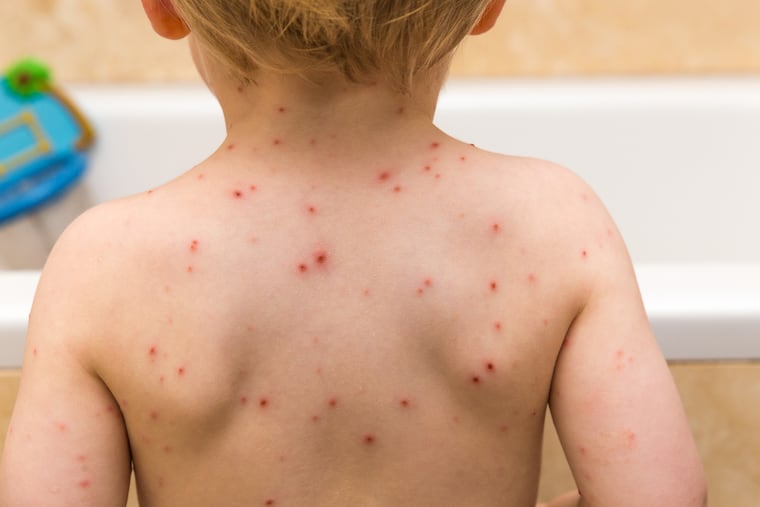Let’s not forget that chicken pox can be a serious disease
A private school in North Carolina is currently experiencing the largest outbreak of chicken pox in the state over the last 20 years. The likely reason? The school has among the highest rates of parents who received exemptions from the state's requirements.

There is no doubt in my mind that misinformation about vaccines is starting to harm our children. A private school in North Carolina is currently experiencing the largest outbreak of chicken pox in the state since the vaccine for it was released over 20 years ago.
As of last Friday, 36 children in the Asheville Waldorf School had chicken pox or varicella over the prior six weeks. The cause of the outbreak? The Asheville elementary school has among the highest rates of parents who received an exemption from the state's vaccination requirements. The state requires vaccination for all children attending schools, but permits medical and religious exemptions.
For the 2017-2018 school year, nearly 68 percent of the 28 kindergarten students at Asheville Waldorf received valid religious exemptions from vaccinations. Buncombe County, in the Western North Carolina mountains where Asheville is located, had the state's highest percentage of religious exemptions—with 5.7 percent of its 2,542 kindergartners receiving one, NPR reported.
Many of the school's parents decided that immunizations were not necessary, especially for chicken pox which they thought was an innocuous and mild childhood disease. They also read the anti-vaccination websites that blamed everything wrong with children on vaccination. Specifically, these websites attributed autism to the varicella, measles and rubella (MMR) vaccine given at 12 months of age.
Luckily, there have been no reports of serious side effects such as brain fever, bloodstream infections, pneumonia, or death, but chicken pox is a serious disease. Before the vaccine came into widespread use in the 1990s, the United States had one million childhood cases per year with 10,000 hospitalizations for serious side effects and about 120 child deaths.
It's heart wrenching to witness when the disease takes a serious turn. When I was a resident physician in 1977, I took care of a bright, lively 16-year-old girl with a poor immune system because of congenital cystic fibrosis. She caught chicken pox from a younger brother and developed chicken pox pneumonia, a serious lung infection which is still untreatable.
I watched her die over six weeks each day, less able to successfully breathe. In spite of oxygen and pressure masks and narcotics for pain, she basically slowly died of lack of oxygen. Chicken pox can kill people with poor immune systems, those who are pregnant, or people in societies that have never been exposed to the virus before.
The varicella vaccine will rarely give the child a red rash or a little fever three to seven days afterwards. Certainly, it never causes serious illness and cannot possibly cause autism since it is clear that people are born with autism.
Unfortunately, doctors cannot easily tell a child is on the autism spectrum until the second year of life so the actual diagnosis happens after the MMR is given. The original paper published in the Lancet, an important British medical journal, was a fraud. In 1998, a doctor named AK Wakefield was bribed by a lawyer trying to get money from a vaccine company and he made up research showing the MMR caused colitis and autism in 12 patients. Eventually, Wakefield lost his medical license and the paper was withdrawn from the medical journal. However, the article's effect still lingers today.
Another important thing to note about vaccines—no vaccine protects someone 100 percent from getting a specific disease. They usually protect 75 to 90 percent and depend on the concept of "herd immunity". When a sufficient proportion of a population is immune to an infectious disease through vaccination or prior illness, this makes its spread from person to person unlikely. Even individuals not vaccinated such as newborns and those with chronic illnesses are offered some protection because the disease has little opportunity to spread within the community.
When a family decides to endanger its own children by refusing a vaccination, they also endanger the people around them. Vaccines are not dangerous, but the diseases they prevent are the actual threat. Let's not forget this.